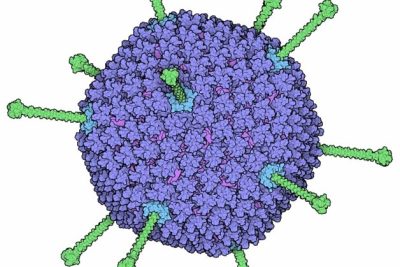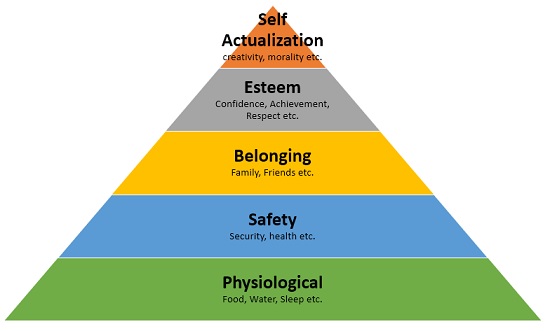
Need: Understanding Its Definition and Meaning Explained

The concept of need is fundamental to human existence and shapes our actions, motivations, and decisions. Understanding need is essential, as it encompasses a wide range of requirements - from basic survival essentials like food and water to psychological needs like companionship and love. In this article, we will delve into the multifaceted nature of need, addressing its definition, various contexts in which it arises, and its psychological implications. By exploring these dimensions, we can gain a deeper understanding of how need influences our everyday lives.
When we examine the term need, it becomes clear that it is more than just a simple word; it signifies a sense of urgency and importance in fulfilling certain aspects of our lives. From the phrase “badly needed” to “much-needed,” we often emphasize the depth of our needs within different scenarios. This article will also illustrate various examples of needs in everyday life and explore the relationship between need and dependency. Ultimately, understanding need will help us navigate the complexities of human behavior and relationships.
Definition of "Need"
The term need can be defined as a requirement or necessity that an individual must satisfy to function effectively in life. It embodies everything from physical necessities, such as food, clothing, and shelter, to emotional and psychological requirements, like love and acceptance. According to Maslow's Hierarchy of Needs, needs are often categorized in a pyramid structure, ranging from basic physiological needs at the bottom to self-actualization at the top. Each level of this hierarchy demonstrates the foundational role that needs play in human motivation and behavior.
At its core, a need signifies a lack of something that, if unmet, could lead to negative consequences. In this sense, need is closely associated with feelings of urgency and importance. For instance, if someone is experiencing hunger, the immediate need for food becomes paramount. Similarly, if an individual is feeling isolated, the need for social interaction becomes a critical focus. In this way, the definition of need extends beyond mere want or desire, making it an essential component of our lives.
Different Contexts of Need
Needs manifest in various contexts, influencing how we perceive and react to our environments. For example, in the medical field, the needs of patients often take precedence over other considerations. Doctors and medical professionals prioritize needs based on urgency, assessing physical needs first, like immediate treatment for pain or injuries. Similarly, in education, the needs of students vary widely based on their backgrounds, learning styles, and social circumstances, prompting educators to adapt their teaching methods to meet those needs.
In a psychological context, individuals may express their needs differently. For instance, while some may openly seek help when they experience distress, others may conceal their feelings, leading to prolonged suffering. Understanding the context surrounding a need is crucial for effective communication and support. Additionally, cultural factors can play a significant role in how needs are expressed and satisfied. What one culture perceives as a priority may not resonate the same way in another, highlighting the diverse ways in which need is interpreted across different societies.
The Psychological Aspect of Needs
The psychological dimensions of need are particularly intriguing, as they delve into the motivations behind human behavior. Each individual has a unique set of psychological needs that influences their actions, decision-making, and personal growth. These needs can include a sense of security, belonging, self-esteem, and self-actualization, among others. Addressing these psychological needs can lead to improved mental health, fulfilling relationships, and increased life satisfaction.
Additionally, our needs can affect our emotional well-being significantly. When basic psychological needs go unmet—such as the need for acceptance or validation—individuals may experience feelings of anxiety, depression, or loneliness. Conversely, when needs are recognized and fulfilled, they can help foster a sense of resilience, confidence, and overall well-being. Recognizing and addressing our psychological needs serves as an essential step toward personal growth and emotional stability.
Urgency and Importance: "Badly Needed" vs. "Much-Needed"
In discussing the concept of need, we often encounter phrases that denote varying degrees of urgency and significance, such as "badly needed" and "much-needed." Understanding the subtleties between these phrases allows us to communicate the essence of our needs more effectively. A "badly needed" item or resource often implies an immediate and critical requirement, such as medical supplies during a public health crisis. In this situation, the urgency to fulfill this need cannot be overstated.
On the other hand, something that is "much-needed" may reflect a significant but less pressing requirement. For instance, a community may express a "much-needed" desire for improved recreational facilities, highlighting the potential benefits to the quality of life for its members without the same level of immediate urgency as a medical need. Thus, the distinction between these phrases emphasizes the varying degrees of need and helps prioritize resources and efforts accordingly.
Examples of Need in Everyday Life
Everyday life provides countless examples of needs that dictate our actions and interactions. Consider the basic physiological needs—hunger can prompt individuals to eat, while thirst may lead someone to seek water. These are examples of the most primal needs, which are essential for survival. Additionally, social needs are also prevalent. For instance, many people seek connection and community engagement as a way to satisfy their need for companionship and belonging.
Furthermore, in the workplace, the needs of employees often drive organizational decisions. For instance, employers may implement flexible working hours or mental health resources to address the well-being needs of their staff. By recognizing these essential needs, organizations can foster a more productive and positive work environment.
The Relationship Between Need and Dependency
The relationship between need and dependency is intricate and multifaceted. Needs can create dependencies, whether they are physical, emotional, or psychological. For example, an individual with a chronic illness may develop a dependency on medication to manage their health, highlighting a direct connection between a fundamental need and a state of reliance. Similarly, emotional dependencies can occur when individuals rely on relationships to fulfill their needs for love or approval, which can lead to unbalanced relationships.
This dependency can be both beneficial and detrimental. While meeting our needs can foster positive relationships and enhance well-being, unhealthy dependencies can lead to challenges, such as co-dependency or feelings of inadequacy when needs are unmet. Therefore, understanding the nuances of need and dependency equips individuals with the tools necessary for maintaining healthy relationships while fulfilling their essential requirements.
Conclusion: The Importance of Understanding Needs
Understanding need is crucial for navigating the complexities of human behavior and relationships. By recognizing the various contexts and psychological aspects of needs, as well as differentiating between urgency and importance, we can better address and fulfill these requirements in our lives and the lives of others. Furthermore, appreciating the relationship between need and dependency can lead to healthier interactions, allowing us to support ourselves and those around us more effectively.
The concept of need is deeply embedded in our daily lives, influencing our actions, responses, and emotional well-being. From fulfilling basic physiological needs to addressing complex psychological requirements, understanding need provides valuable insights into motivation and human behavior. Ultimately, recognizing and adequately addressing our needs cultivates resilience, fulfillment, and a deeper connection with ourselves and others.
Did you find this article helpful? Need: Understanding Its Definition and Meaning Explained See more here Education.
Leave a Reply






Related posts